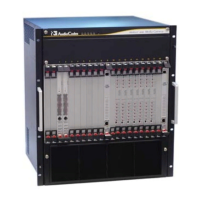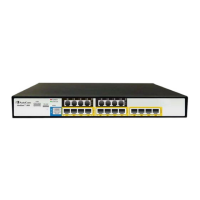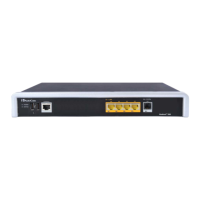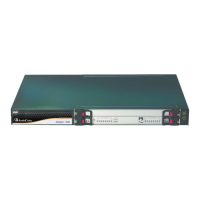User's Manual 774 Document #: LTRT-10632
Mediant 800B Gateway & E-SBC
38.4 WebRTC
The device supports interworking of Web Real-Time Communication (WebRTC) and SIP-
based VoIP communication. The device interworks WebRTC calls made from a Web
browser (WebRTC client) and the SIP destination. The device provides the media interface
to WebRTC.
WebRTC is a browser-based real-time communication protocol. WebRTC is an open
source, client-side API definition (based on JavaScript) drafted by the World Wide Web
Consortium (W3C) that supports browser-to-browser applications for voice calling (video
chat, and P2P file sharing) without plugins. Currently, WebRTC is supported only by
Mozilla Firefox and Google Chrome Web browsers. Though the WebRTC standard has
obvious implications for changing the nature of peer-to-peer communication, it is also an
ideal solution for customer-care solutions to allow direct access to the contact center. An
example of a WebRTC application is a click-to-call button on a consumer Web site (see
following figure). After clicking the button, the customer can start a voice and/or video call
with a customer service personnel directly from the browser without having to download
any additional software plugins. The figure below displays an example of a click-to-call
application from a customer Web page, where the client needs to enter credentials
(username and password) before placing the call.
Figure 38-5: Example of WebRTC for Click-to-Call Application
Note: The WebRTC feature is a license-dependent feature and is available only if it is
included in the License Key that is installed on the device. For ordering the feature,
please contact your AudioCodes sales representative.
The WebRTC standard requires the following mandatory components, which are supported
by the device:
Voice coders: Narrowband G.711 and wideband Opus (Version 1.0.3, per RFC
6176).
Video coders: VP8 video coder. The device transparently forwards the video stream,
encoded with the VP8 coder, between the endpoints.

